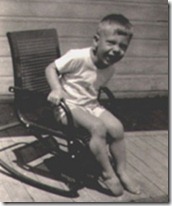Languages
Original Post: 6 April 2012
Posted Here: 5 December 2017
 Being a rabid reader from as early as I can remember, I have always been interested in language. I especially enjoyed reading Words and Things, by Roger Brown, back in 1968. (I just checked – the book is still available from Amazon.com .) I was also an avid reader of comic books (I didn’t go blind or suffer any of the afflictions predicted by neighbors and relatives who learned of this vice). My first attempt at learning another language was from a Cisco Kid comic book. Inside the front cover were a number of Spanish words and phrases to learn. Unfortunately, it had no guide to pronunciation, so I must have sounded strange when I said “Queen sayb?” when I meant “Quien sabe?” A little later, I purchased a copy of a Berlitz book for learning Spanish. (I don’t remember the title, but I’m sure it’s on a shelf here somewhere.) I learned two things: 1) “Queen sayb?” was wrong, and 2) I didn’t have a talent for learning languages. I did try again when in college. I took German because I knew that I would need a foreign language in graduate school. But it didn’t stick any better than the first few pages of my Berlitz self teacher (Was that the title?)
Being a rabid reader from as early as I can remember, I have always been interested in language. I especially enjoyed reading Words and Things, by Roger Brown, back in 1968. (I just checked – the book is still available from Amazon.com .) I was also an avid reader of comic books (I didn’t go blind or suffer any of the afflictions predicted by neighbors and relatives who learned of this vice). My first attempt at learning another language was from a Cisco Kid comic book. Inside the front cover were a number of Spanish words and phrases to learn. Unfortunately, it had no guide to pronunciation, so I must have sounded strange when I said “Queen sayb?” when I meant “Quien sabe?” A little later, I purchased a copy of a Berlitz book for learning Spanish. (I don’t remember the title, but I’m sure it’s on a shelf here somewhere.) I learned two things: 1) “Queen sayb?” was wrong, and 2) I didn’t have a talent for learning languages. I did try again when in college. I took German because I knew that I would need a foreign language in graduate school. But it didn’t stick any better than the first few pages of my Berlitz self teacher (Was that the title?)
 I enjoy hearing the spoken language. I especially enjoy hearing non-native speakers conversing in English. I think the Irish and Scottish accents are beautiful. My favorite is the musical cadence of folks from India. Thrown in with the melodic sounds from the accents are the occasional unique expressions and even occasional words from their native tongues. Hercule Poirot is always slipping in “oui,” “mon ami” or “N’est-ce pas?” into his fluent English on Masterpiece Mystery shows.
I enjoy hearing the spoken language. I especially enjoy hearing non-native speakers conversing in English. I think the Irish and Scottish accents are beautiful. My favorite is the musical cadence of folks from India. Thrown in with the melodic sounds from the accents are the occasional unique expressions and even occasional words from their native tongues. Hercule Poirot is always slipping in “oui,” “mon ami” or “N’est-ce pas?” into his fluent English on Masterpiece Mystery shows.
When I write science fiction involving alien speakers, everything is translated into English. I know that sometimes it is permissible to have a passage of dialog in an alien language, such as when the Klingons are at home chatting, but I haven’t had the opportunity to talk about chocolate. In fact, I haven’t invented any alien languages. The closest that I’ve come is the speech patterns of Trittcha and her people (“A Last Farewell” in Silver Threads.) I try to create unique, alien alternatives to our own expressions, such as “whistling the midnight tune,” an Adondi expression that means “sleeping.” For Pierre Bordeaux, who is a French-speaking skink-like alien, I do the same as Agatha Christie did for Poirot – I drop in an occasional “oui” or “mon ami.” My intent is to remind the reader that, although she can’t hear it on the written page, Pierre is speaking with a French accent.
The use of real foreign words and phrases can be overdone. One of the magazines that I’ve submitted to has several folks who read submissions and then they actually send rejection slips with helpful comments. One of their readers objected to having to keep a foreign dictionary by his side. Perhaps I had overdone it a bit in the submitted story. However, I got a similar response when I submitted another story limited to just a few uses of “oui” and “mon ami”—I’ll let you make your own conclusions there. (Doesn’t everybody know the meaning of “oui” or “mon ami”?)
I found that Google Translate can be very helpful when I need to know how to spell a foreign phrase that I’ve only heard (According to one of my friends in our critique group, “N’est-ce pas?” doesn’t look anything like it sounds.) For a foreign name, a web search can provide sources. During a part of Waxonian history (from my SF novel, The Centaurian Bud Vase) , the skinks were ruled benevolently by Lithuanians. I did a search and found a site, Behind the Name, where I could choose Lithuanian names for characters in my novel.
Sometimes I need a name for an alien character, starship, city or planet. I could probably find a site on the Internet to help here, but I haven’t bothered to do so. I have a very nice program on my computer called WordWeb Pro. Enter in a word and it gives the definition, synonyms, and other useful sorts of info. It can even help when I’m not sure about the spelling or if a word like air-ship should be hyphenated (not when it’s a noun.) These functions are useful enough, but when I want to create an alien name I go to the View menu and select a Random word. Then I select Anagrams. The Anagrams function takes the letters of my Random word and jumbles them up into all sorts of interesting combinations, from which I can select all or parts of an offering for my alien name. That’s how I came up with the Waxonian name, Aryla Fitvet. for Pierre Bordeaux’s Great Great… Grandmother.
Language is fun. Reading is fun. Writing is fun.
Keep reading/keep writing – Jack